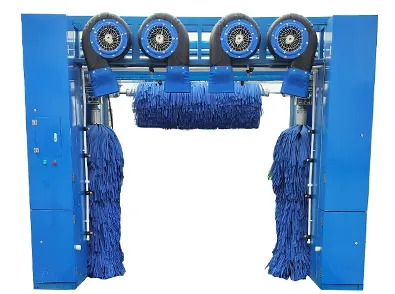
- Afrikaans
- Albanian
- Amharic
- Arabic
- Armenian
- Azerbaijani
- Basque
- Belarusian
- Bengali
- Bosnian
- Bulgarian
- Catalan
- Cebuano
- Corsican
- Croatian
- Czech
- Danish
- Dutch
- English
- Esperanto
- Estonian
- Finnish
- French
- Frisian
- Galician
- Georgian
- German
- Greek
- Gujarati
- Haitian Creole
- hausa
- hawaiian
- Hebrew
- Hindi
- Miao
- Hungarian
- Icelandic
- igbo
- Indonesian
- irish
- Italian
- Japanese
- Javanese
- Kannada
- kazakh
- Khmer
- Rwandese
- Korean
- Kurdish
- Kyrgyz
- Lao
- Latin
- Latvian
- Lithuanian
- Luxembourgish
- Macedonian
- Malgashi
- Malay
- Malayalam
- Maltese
- Maori
- Marathi
- Mongolian
- Myanmar
- Nepali
- Norwegian
- Norwegian
- Occitan
- Pashto
- Persian
- Polish
- Portuguese
- Punjabi
- Romanian
- Russian
- Samoan
- Scottish Gaelic
- Serbian
- Sesotho
- Shona
- Sindhi
- Sinhala
- Slovak
- Slovenian
- Somali
- Spanish
- Sundanese
- Swahili
- Swedish
- Tagalog
- Tajik
- Tamil
- Tatar
- Telugu
- Thai
- Turkish
- Turkmen
- Ukrainian
- Urdu
- Uighur
- Uzbek
- Vietnamese
- Welsh
- Bantu
- Yiddish
- Yoruba
High Efficiency Professional Car Wash Machine for Commercial Use Under High Pressure
The Rise of Commercial High-Pressure Car Wash Machines Revolutionizing Vehicle Cleaning
In the fast-paced world we live in, where time is precious and visual appearances are crucial, businesses are constantly seeking effective ways to enhance their services. One significant development in the automotive care industry is the commercial high-pressure car wash machine. These machines have transformed the way vehicles are cleaned, providing businesses with an efficient and cost-effective solution that meets the demands of consumers seeking cleanliness with minimal wait times.
High-pressure car wash machines operate using powerful jets of water that can dislodge dirt, grime, and road residues from vehicles much more effectively than traditional washing methods. These machines can reach pressures of up to 3000 PSI (pounds per square inch), allowing them to clean tough stains and achieve a level of cleanliness that is difficult to attain manually. The technology behind these machines has evolved, incorporating advanced features such as heated water, adjustable nozzles, and environmentally friendly detergents.
The benefits of using commercial high-pressure car wash machines extend beyond just their cleaning capabilities. They significantly reduce labor costs, as one machine can replace several workers. With the ability to clean a car in just a few minutes, businesses can serve more customers within a short period, leading to increased revenue. This is particularly beneficial for car wash operators who often face queues during peak hours. Customers appreciate the efficiency and quick service, making it more likely for them to return.
Moreover, these machines are highly versatile. Apart from standard cars, they can also accommodate larger vehicles such as trucks and SUVs, making them an attractive option for businesses that aim to cater to a broader clientele. High-pressure washers can also be utilized for other cleaning tasks, including washing bikes, boats, or even driveway surfaces, expanding their utility in a commercial setting.
commercial high pressure car wash machine

Environmental considerations have also driven the adoption of high-pressure car wash machines. These systems are designed to use less water compared to traditional car washing methods. While manually washing a car might use up to 100 gallons of water, a high-pressure car wash can do the job effectively with just 15 to 30 gallons. Moreover, many modern high-pressure systems integrate water recycling technologies that filter and reuse water, contributing to significant water conservation efforts—a measure that is increasingly important in today's environmentally conscious world.
However, investing in commercial high-pressure car wash machines requires careful consideration. Businesses must assess their location, target market, and specific service offerings to ensure that the investment aligns with their business model. Additionally, operators need proper training to handle these machines correctly to avoid any damage to vehicles or equipment and to ensure the safety of employees and customers alike.
Maintenance of high-pressure car wash machines is also crucial to their longevity and effectiveness. Regular checks and servicing can prevent wear and tear, ensuring that the machines consistently deliver optimal performance. Furthermore, staying updated with the latest technologies and washing products can help enhance performance and attract more customers.
In conclusion, commercial high-pressure car wash machines have revolutionized the vehicle cleaning industry by providing efficient, cost-effective, and environmentally friendly solutions. Their ability to handle tough cleaning jobs in a fraction of the time required by manual methods has made them indispensable for modern car wash businesses. As consumer expectations continue to rise, these machines will likely play an even more significant role in shaping the future of vehicle care, promising a cleaner and more efficient experience for all. The drive for innovation and efficiency in car cleaning is not just a trend; it is becoming a standard that aligns with today's fast-paced lifestyle and increasing awareness of sustainable practices.
-
Xingtai Dingyuan Carwash Equipment Supplier StoryNewsAug.24,2025
-
Xingtai Dingyuan Car Wash Manufacturers StoryNewsAug.24,2025
-
Wholesaler’s Choice DY-QC-9 Tunnel Car Washing MachineNewsAug.24,2025
-
The Efficient Solution For Sourcing Commercial Car Washing MachinesNewsAug.24,2025
-
DY-QC-5 Automatic Car Washing Machine Dingyuan IntelligentNewsAug.24,2025
-
DY-QC-5 Automatic Car Washing Machine For WholesalersNewsAug.24,2025



